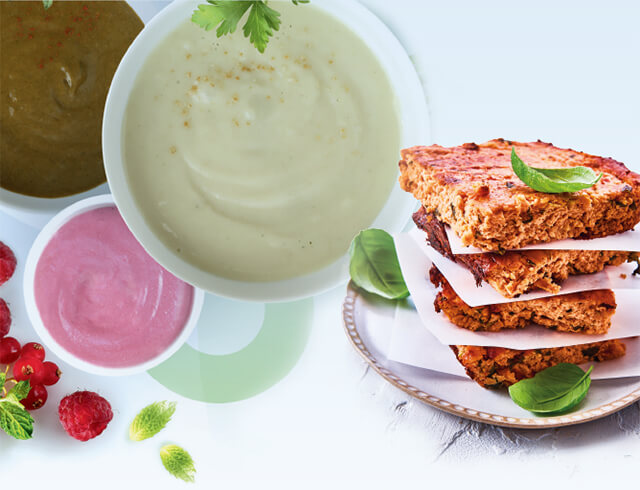
Sleeve gastrectomy is a safe and clinically proven bariatric surgery to reduce body weight. The procedure involves reducing the size of the stomach by separating the upper part of the stomach, called the fundus, from the rest of the organ.
A smaller stomach means a weaker appetite. You become satiated more quickly and are therefore less likely to overeat.
The effectiveness of sleeve gastrectomy largely depends on your pre- and post-operative diet. Below are some tips to maximize the benefits of weight loss surgery through sleeve gastrectomy.
What should I eat before getting a sleeve gastrectomy?
The preoperative diet is your plan for dietary intake in the period leading up to your sleeve gastrectomy. Your diet is crucial for the success of the operation for three reasons:
It makes the procedure safer and easier. The preoperative diet helps reduce fatty deposits around the liver, improving surgical access to the stomach.
It reduces the risk of complications.
Obesity increases the risk of medical complications during and after surgery; weight loss can counteract this risk.
It allows you to adopt the habits you will need to commit to controlling your weight throughout your life. You will gain the confidence to set and achieve goals.
In many cases, you should start your pre-sleeve gastrectomy diet three weeks before your surgery. Please consult your program coordinator or dietitian for more details on when to start your diet, how much food to consume, foods to avoid, etc.
Preoperative Diet for Sleeve Gastrectomy: 3 weeks before surgery
During the three weeks leading up to the operation, you will typically plan your meals as follows:
Reduce calories, especially carbohydrates. Carbohydrates are a significant source of calories in most American diets. Refined sugars, like those found in candies and sodas, should be eliminated. Other carbohydrate sources, like bread and pasta, are not inherently bad, but limiting their consumption can have a positive effect on your weight.
Maximize protein intake. Consume 60 grams of protein or more per day. Good sources of protein include chicken, lean ground beef, eggs, and salmon.
Prioritize healthy fats. It’s a myth that all fats are bad for health. Some are, and some are not. Healthy fats are found in foods like fish, nuts, and olives. Other fats, like those found in butter or oils, should be reduced. Trans fats should be avoided entirely.
Don’t dehydrate yourself. Drink plenty of water in the weeks leading up to your surgery. Reduce or avoid carbonated drinks and alcoholic beverages.
Many programs recommend eating 800 to 1200 calories per day and sticking to these guidelines until two or three days before sleeve gastrectomy surgery. Please consult your program coordinator or dietitian for more details.
Preoperative Diet for Sleeve Gastrectomy: 2 to 3 days before surgery
Two or three days before the operation, you will need to switch to a completely liquid diet. Limit your diet to water, broth, gelatin, and low-calorie sports drinks (no sodas). You must cease all consumption from midnight on the day of the operation, including water. Failure to follow these guidelines may compromise your eligibility for sleeve gastrectomy surgery.

What should I eat after sleeve gastrectomy?
Your postoperative diet – what you eat in the weeks and months following sleeve gastrectomy surgery – is just as important as your preoperative diet. You will start with liquids and then gradually reintroduce solid foods.
Following your postoperative diet is essential if you want to enjoy the benefits of bariatric surgery. It will also help you avoid potential health complications, including diarrhea, nausea, vomiting, constipation, and gastric leaks. Here is a week-by-week diet plan detailing what to eat after sleeve gastrectomy surgery:
Post-Sleeve Gastrectomy Diet: 1st week after surgery
During the first week following surgery, you will be limited to clear liquids. In addition to water, you can drink clear broth, decaffeinated beverages, and sugar-free drinks. Avoid carbonated drinks, caffeine, and anything with added sugar.
Post-Sleeve Gastrectomy Diet: 2nd week after surgery
During the second week, you will add thicker liquids to your postoperative diet. This may include applesauce, cream of wheat, Greek yogurt, protein drinks, sugar-free ice cream, and puddings.
Post-Sleeve Gastrectomy Diet: 3rd week after surgery
Next come soft and pureed foods. These include eggs, ground meats, fish, beans, cooked vegetables, and soft fruits.
Post-Sleeve Gastrectomy Diet: 4th week after surgery
Solid foods are finally back starting from the fourth week after surgery. At this stage, the postoperative diet is similar to your pre-surgical diet. Some foods remain off-limits: fried foods, candies, nuts, seeds, full-fat dairy products, bread, pasta, and fibrous vegetables like broccoli. You are allowed to reintroduce caffeine, but only in small amounts.
Over time, you can add some of the above excluded items back in, but still in small portions. You should continue to focus on lean proteins, complex carbohydrates, and healthy fats. Avoid processed foods and sugar-added products. Eat slowly, chew carefully, and stop eating when you are no longer hungry.

